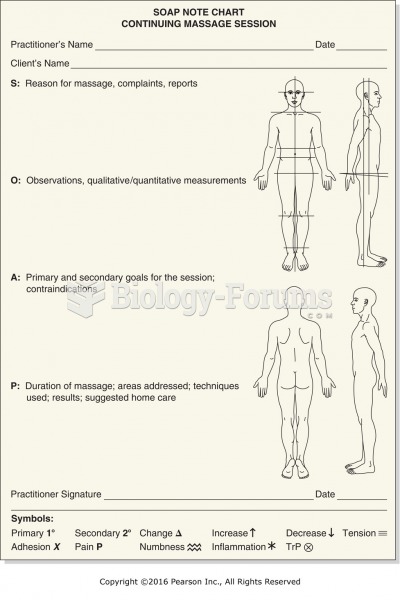This topic contains a solution. Click here to go to the answer
|
|
|
Did you know?
Stroke kills people from all ethnic backgrounds, but the people at highest risk for fatal strokes are: black men, black women, Asian men, white men, and white women.
Did you know?
Famous people who died from poisoning or drug overdose include, Adolf Hitler, Socrates, Juan Ponce de Leon, Marilyn Monroe, Judy Garland, and John Belushi.
Did you know?
A seasonal flu vaccine is the best way to reduce the chances you will get seasonal influenza and spread it to others.
Did you know?
Approximately one in four people diagnosed with diabetes will develop foot problems. Of these, about one-third will require lower extremity amputation.
Did you know?
There are 20 feet of blood vessels in each square inch of human skin.
 Lumbar puncture. Abbreviated LP, the lumbar puncture is a common procedure that withdraws cerebrospi
Lumbar puncture. Abbreviated LP, the lumbar puncture is a common procedure that withdraws cerebrospi
 For ice massage, ice is frozen in a cylindrical container or a paper cup (A). The top half of the cu
For ice massage, ice is frozen in a cylindrical container or a paper cup (A). The top half of the cu





